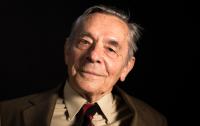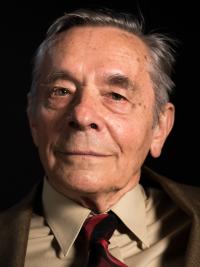I haven’t agreed with what the communists were doing so I returned my membership card

Download image
Milan Černoch was born on 24 September 1930 in Prague. He joined the Communist Party in 1947, considering the membership as a way to help build a new, better society. In 1950 he started studying at the Czech Technical University. Only a year later he decided to leave the party since he disagreed with the political processes and forced nationalization of property. He returned his party membership card which caused him great trouble. At school, public gathering were being convened where students disapproved of his decision. Attacks against him culminated by an expulsion from the university in spite of his great grades. He then worked in the Hutní projekty company and helped build steelworks “Klement Gottwald” in Ostrava. Ever since 1965 he was employed in the Research Institute for Fuels where he was in charge of projects for the desulphurization of power plants. He retired in 1990.

